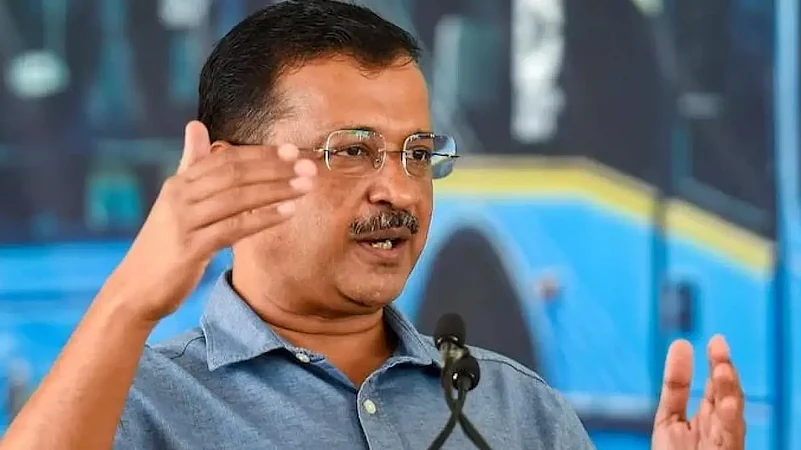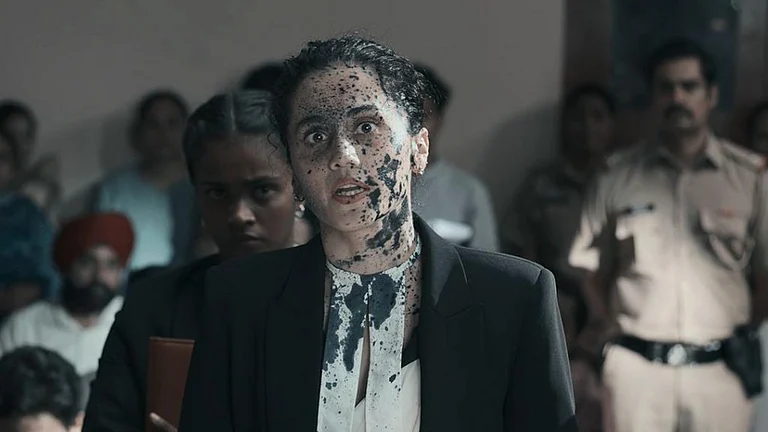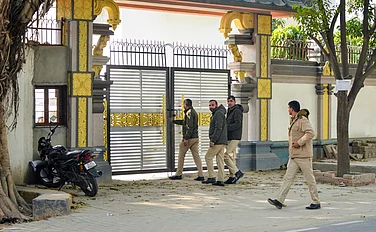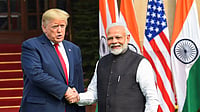Chief Minister Arvind Kejriwal Wednesday lauded the contributions of the Delhi government's think tank DDC in different fields, including innovations and initiatives in governance, economy, employment, transport and other sectors since its inception seven years ago.
He also defended vice chairman of Dialogue and Development Commission (DDC) Jasmine Shah, saying the panel has done exemplary work and a showcause notice issued to him was wrong.
Shah was issued the show cause notice earlier this week by the planning department on the instruction of LG VK Saxena for alleged "misuse of public office".
"I think its wrong because LG has no jurisdiction as he (Shah) was appointed by the Delhi Cabinet that alone has the power to ask him such questions," Kejriwal said in a press conference.
The DDC also issued a booklet on its 70 innovations in different fields during the last seven years of its existence.
"During Covid, we started a scheme to provide free ration to those without ration cards. The DDC had come up with an e-coupon system to implement it. Earlier, CATS ambulance used to take 55 minutes but during the pandemic, the DDC redesigned the system, procured new ambulances and brought down the waiting time to 18 minutes," the chief minister said.
"The DDCD is behind the robust electric vehicle policy formulated with stakeholders after rigorous consultations over a period of one to one-and-a-half years," Kejriwal said.
Governments cannot function without the backing of a strong consultative institution like DDC which takes into account the views and opinions of all stakeholders affected by government policies, said the Delhi chief minister.
The DDC is the think-tank of the Delhi government advising it in devising sustainable, people-centric solutions to the critical development challenges facing Delhi. Aiming for a perpetual dialogue between the government and the people of the city it was constituted with the approval of the Delhi Cabinet on 27 February 2015.
The commission focuses on six sectors, including social, transport and infrastructure, environment, economy, governance and monitoring and evaluation.
Its innovations in various fields include a Health Information Management System to digitise and integrate the health system to improve patient experience, increase the efficiency of healthcare services and enable data and fact-based decision making
The project also features QR-based health E-Cards which will contain the entire medical history of the cardholder. People will be able to book appointments digitally and get treated at any clinic/hospital connected to the HIMS system, according to a statement.
Its other innovations and policy interventions include the formulation and implementation of street vendor rules.
The commission is also credited with the formulation of a progressive electric vehicle policy and faceless services of the transport department. Delhi street infrastructure development through CCTVs, wifi facilities and streetlights were also taken up by the panel.
The statement said so far 2.75,000 CCTV cameras, 11,000 WiFi hotspots and 1,17,000 streetlights covering all dark spots have been set up in Delhi.
In the environment sector, the panel has advised designing and developing a unified grievance redressal mobile app for all air pollution-related complaints in Delhi, bringing 27 agencies on a single platform.
The commission has also framed model guidelines for recycling 'end-of-life' EV batteries. It also brought on board a team of experts from IIT-Kanpur, TERI and IIT-Delhi to help the Delhi Pollution Control Committee set up the city's first system for real-time source apportionment of air pollution, the statement said.
It is also closely associated with the planning and implementation of various employment-oriented schemes announced in the Kejriwal government's budget, including the Dilli Bazar portal, the Rozgar Bazaar portal, doorstep delivery of services, Delhi@2047, and Chief Minister's Urban Leaders Fellowship programme are other innovations of the panel, added the statement.
-With PTI Input


























